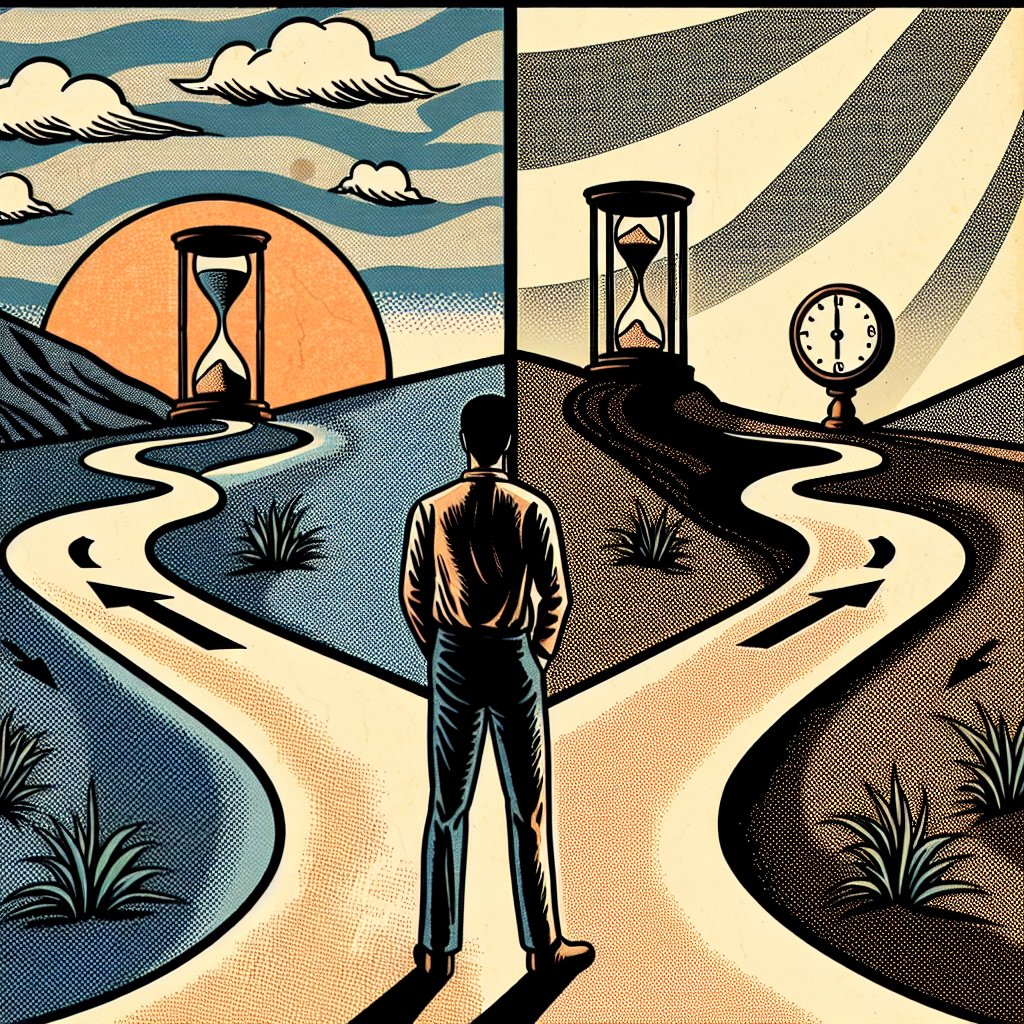Why Your Anxiety About Making the Perfect Choice Is Actually a 2,500-Year-Old Philosophical Problem

In today’s hyperconnected world, we are inundated with choices—from selecting the perfect cup of coffee to determining our life’s path. This abundance often leads to what psychologists term ‘choice paralysis,’ a state where the sheer number of options overwhelms our decision-making abilities. However, this modern dilemma isn’t a recent phenomenon; it echoes a philosophical puzzle that has intrigued thinkers for over two millennia.
The Ancient Roots of Choice Paralysis
The dilemma of choice paralysis traces back to ancient philosophy, notably through Buridan’s Paradox. This thought experiment, attributed to the 14th-century philosopher Jean Buridan, presents a scenario where a donkey, equally hungry and thirsty, stands equidistant between a stack of hay and a pail of water. Unable to choose between the two identical options, the donkey starves to death. This paradox illustrates the challenges inherent in making decisions when faced with equally appealing choices. (en.wikipedia.org)
While Buridan’s Paradox is a medieval construct, its roots can be traced back to Aristotle, who discussed similar dilemmas in his work On the Heavens. He used the example of a man equally hungry and thirsty, questioning how such a person would choose between food and drink. This suggests that the struggle with choice has been a longstanding human concern. (en.wikipedia.org)
The Existentialist Perspective
Fast forward to the 20th century, existentialist philosophers like Jean-Paul Sartre delved deeper into the human experience of choice. Sartre famously stated, “Man is condemned to be free,” highlighting the inherent anxiety that accompanies the freedom to choose. This freedom, while empowering, also places the weight of responsibility squarely on the individual, leading to feelings of anguish and uncertainty. (en.wikipedia.org)
Sartre’s concept of “bad faith” further explores this theme. He describes it as self-deception, where individuals avoid acknowledging their freedom and responsibility by conforming to societal norms or predefined roles. This avoidance can lead to a lack of authenticity and a sense of alienation. (en.wikipedia.org)
The Paradox of Choice
In contemporary times, the abundance of choices has been termed the “paradox of choice.” Psychologist Barry Schwartz argues that while some choice is essential for autonomy and well-being, an overabundance can lead to anxiety, dissatisfaction, and paralysis. This mirrors the ancient and existentialist concerns about the burdens of choice.
Satisficing vs. Maximizing
One approach to mitigating choice paralysis is the concept of “satisficing,” introduced by psychologist Herbert Simon. Rather than seeking the optimal choice (maximizing), satisficing involves selecting an option that meets acceptable criteria, thereby reducing the stress associated with endless deliberation. This strategy aligns with existentialist ideas of embracing one’s limitations and making authentic choices without succumbing to the pressure of perfection.
Embracing Freedom and Responsibility
Understanding the historical and philosophical context of choice paralysis can empower individuals to navigate their decisions more effectively. By acknowledging the inherent anxiety in freedom and adopting strategies like satisficing, one can make peace with the decision-making process. This acceptance allows for a more authentic and fulfilling life, free from the paralyzing pursuit of perfection.
In conclusion, the anxiety surrounding the perfect choice is not a modern affliction but a timeless challenge. By exploring ancient philosophical frameworks and existentialist thought, we can gain insights into our decision-making processes and find ways to embrace our freedom without being overwhelmed by it.